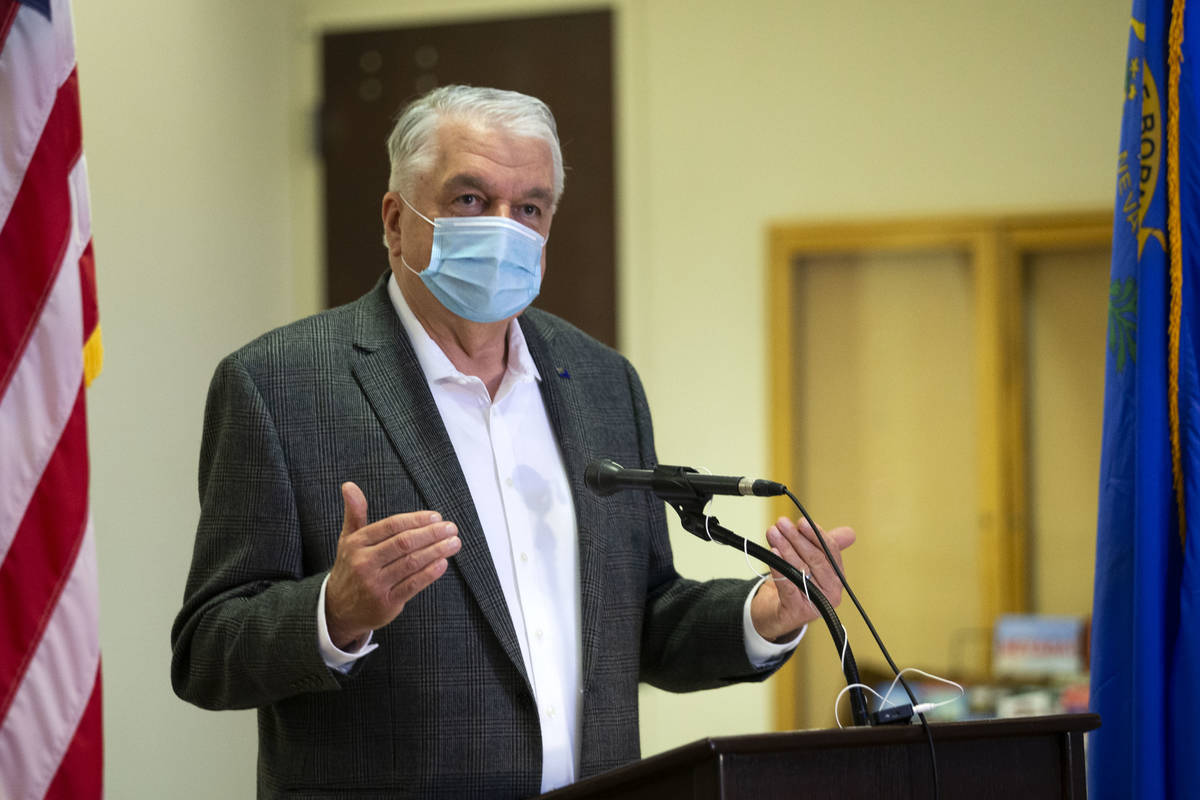Sisolak extends eviction moratorium for 45 days
Gov. Steve Sisolak on Monday signed Emergency Directive 031, extending the moratorium on certain residential evictions for 45 days, through 11:59 p.m. Oct. 14.
This directive extends the moratorium on residential evictions based on nonpayment of rent in Nevada to provide for greater housing stability so that people can remain in their homes as the state continues to recover from both the health and economic ramifications brought on by the COVID-19 pandemic.
“As I have done previously, this extension is intended to keep people in their homes while we are still battling this pandemic,” Sisolak said. “I am confident that this 45-day extension will allow the various agencies and organizations more time to get these programs up and running and help Nevada’s renters and landlords continue to navigate these unprecedented times and stay healthy and safe in the midst of this pandemic.”
Landlords and tenants can find the guidance and read more about this new directive as well as past evictions related directives on the Governor’s Directives and Declarations page of the Nevada Health Response website at nvhealthresponse.nv.gov
“I originally put a residential eviction moratorium in place to keep Nevadans safe during COVID-19,” Sisolak said. “Keeping Nevadans in their homes to slow COVID-19 was safer than them making emergency shared housing or shelter arrangements, which increases the risk of spreading COVID-19.
“That still remains true today.”
Nevada still has an elevated level of COVID-19 cases, “including in Clark and Washoe, our largest counties,” he added.
Today’s directive seeks to maintain public safety during COVID-19 as Nevada transitions to programs that protect landlords and tenants, the governor said.
“First, it will allow counties time to continue distributing funds for short-term rental assistance to landlords,” Sisolak said. “Second, it will give more time to the Justice Courts, who handle evictions, and are not ready to safely handle the potential number of evictions with in-court filings and hearings. It will also provide the courts additional time to implement the newly created eviction mediation program — allowing them to more quickly stand up the residential mediation program, passed at the most recent special session on a broad, bipartisan basis.
“Finally, it will allow DETR the time to continue making progress on reducing the backlog of unemployment claims, which should be used to pay rent and other living expenses.”
The directive does not change any tenant’s obligation to pay rent.
Sisolak enumerated some of the programs aimed at preventing an eviction crisis and further exasperating the public health crisis in the state.
Sisolak reminded listeners that he had approved using $30 million in state coronavirus relief funds for a statewide short-term rental assistance program in coordination with the Nevada Housing Division, Clark County Social Services, the Reno Housing Authority, the Nevada Rural Housing Authority and the state treasurer.
“In light of this extension and in an effort to provide more relief to tenants and landlords who are still struggling to make ends meed by paying rent or making mortgage payments, I am earmarking an additional $10 million in state coronavirus relief funds toward the short-term rental assistance program,” Sisolak said.
Speaking directly to landlords, Sisolak noted that the program “makes payments directly to landlords on the tenant’s behalf. That’s why it was important to me to set aside an additional $10 million for this rental assistance program.”
Acknowledging the moratorium cannot go on forever, Sisolak empowered the Supreme Court to “expedite the standing up of the eviction mediation program by allowing it to waive the 60-day requirement to create new rules for the program, so that the program can get up and running to serve Nevadans even faster.”
Sisolak had praise for the DETR Rapid Response Strike Force under the direction of Barbara Buckley.
“In under 30 days, this Strike Force has analyzed the backlog and identified reasons why eligible Nevadans are awaiting payment,” the governor said. “In fact, I’ve been informed by DETR that 5,000 people who have been identified will be paid this upcoming week.”
He added that DETR is recruiting more staff to assist with the backlog: 200 part-time welfare eligibility workers, more than 200 more ready to start and retired state employees who were rehired to assist.
“But the unemployment backlog is one reason why I am extending the eviction moratorium,” Sisolak said. “We do not want Nevadans getting evicted while awaiting a determination of their case. And the state will do all it can to get a resolution of outstanding claims.
“I am confident that in the next 45 days all of the various agencies and organizations will work as fast as possible to make sure these programs are up and running to help Nevada’s renters and landlords to navigate these unprecedented times and stay healthy and safe in the midst of this pandemic.”






















